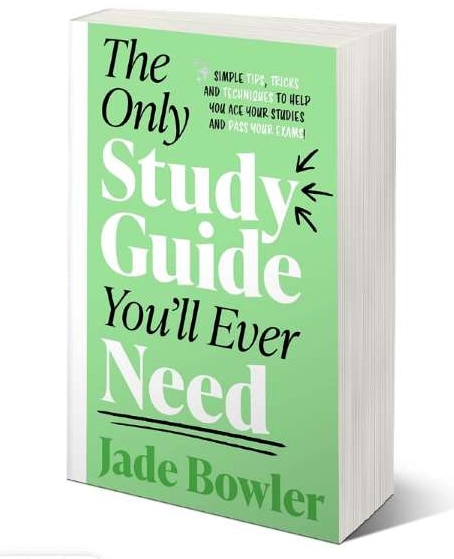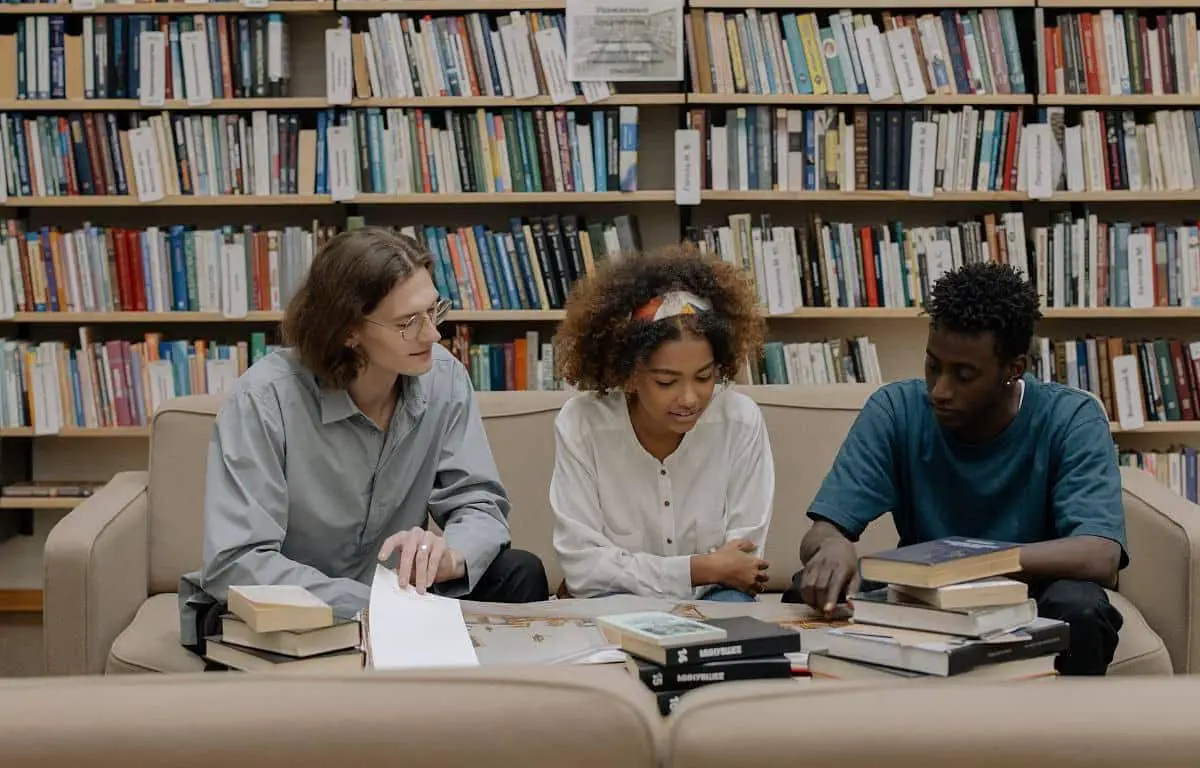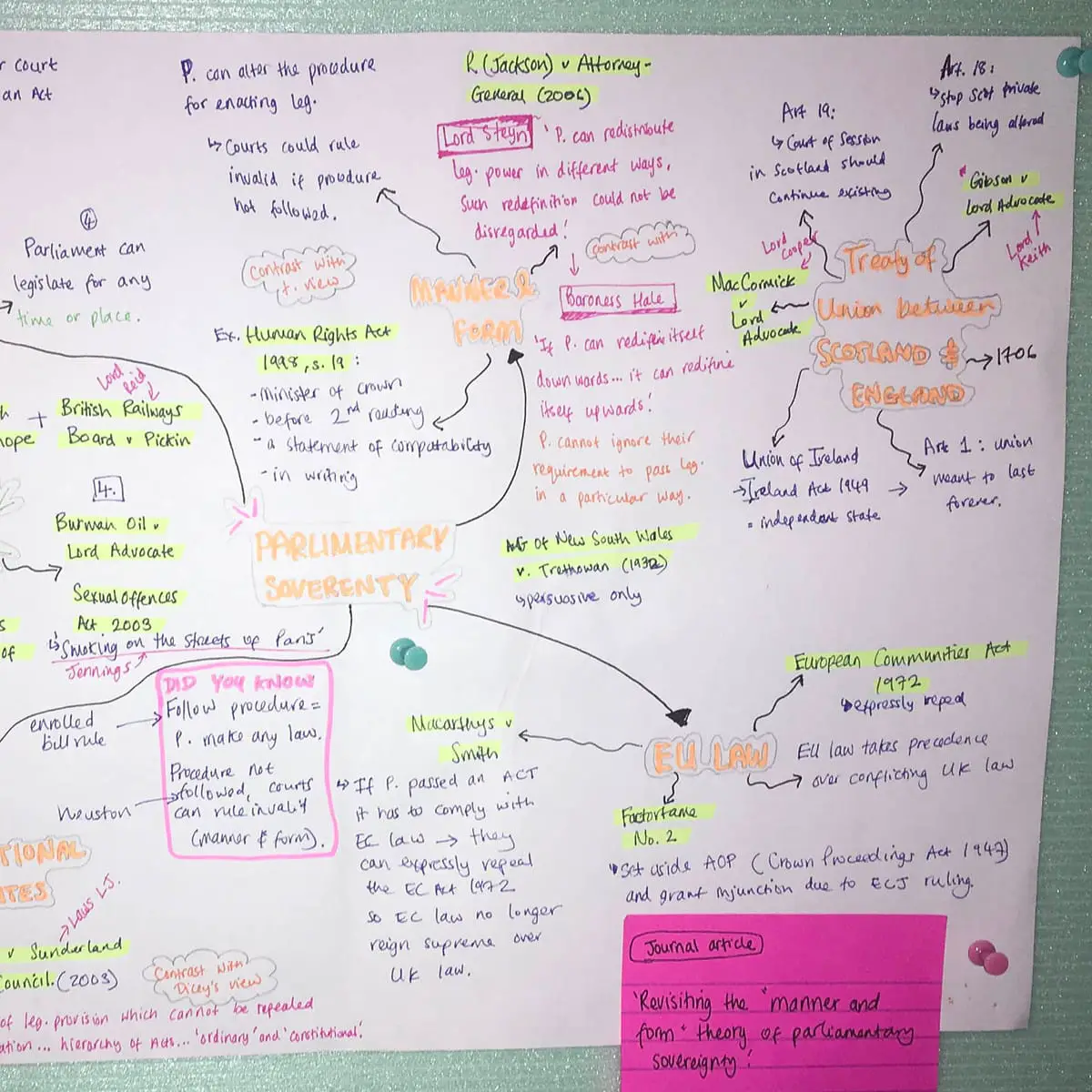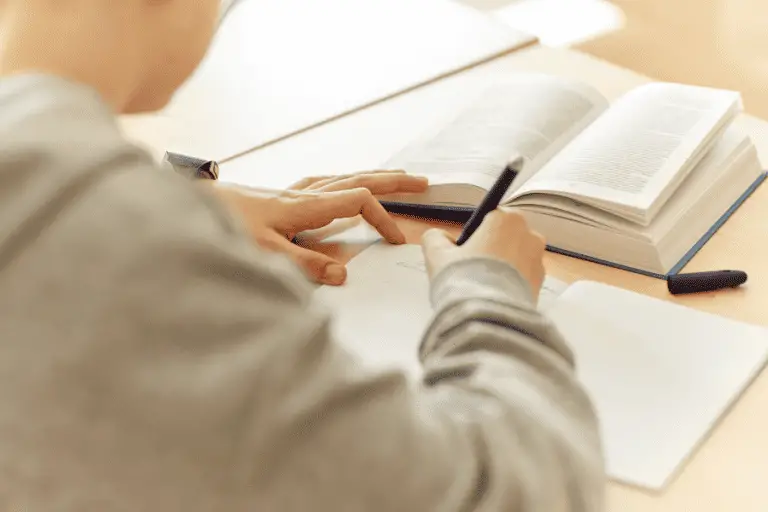Are you feeling overwhelmed by your upcoming exams?
Maybe you are simply not getting anywhere pouring over your books and notes. You even might be experiencing a mental block!
Well, it’s safe to say you’re not alone! As college students, we are constantly seeking effective revision techniques to enhance our learning and retention abilities.
As a former uni student, it can be incredibly difficult to make sense of all the information delivered in our coursework.
So if you’re ready to level up your studies game and retain more knowledge like a guru, then let’s get started!
We will take a look at the mini-answer first before we get into the details.
This post is all about Active Recall vs Blurting.
ACTIVE RECALL VS BLURTING
So now we’ve got the ‘at a glance’ takeaway, let's put these two study styles head to head (active recall vs blurting) and let’s find out more about what active recall is and some examples.
What is Active Recall and How Does it Work?
Active Recall Method: A Powerful Learning Technique
Have you ever found yourself burning the midnight oil for a test, only to forget almost everything you studied in the exam room?
Most of us read over our notes in an attempt to push those facts back into our memory but active recall requires you to actively pull information from your brain without looking at any external resources.
It can be done through flash cards, quizzes, and summarizing key concepts. Active recall techniques has been proven to be a more effective way to learn, as it builds stronger neural connections in your brain.
It's said to strengthen connections and the neural pathway in our brain responsible for memory and means you are more likely to remember the information down the line.
“The active recall method has been proven to be a more effective way to learn, as it builds stronger neural connections in your brain.”
RIAR
Active recall - The Science
Active recall could be the secret to better learning and a much more impressive human memory bank along with crucial retention of information.
Many studies have shown that active recall is one of the best study techniques!
Applauded by Aristotle, he understood that similar to exercising your body, exercising the brain leads to a more alert and functioning brain!
But let’s not simply take his word for it! Research from as far back as 1909 by Roediger and Butler has consistently found that active recall is the study technique for pros!
Studies you can find from experts such as Tulvig, Glover, and Pashler leave no question that intermittent re-testing before a final exam improves memory retention, recall and improves memory.
Relates Article: WHAT IS ACTIVE STUDY AT UNI?: TOP 10 SMART ACTIVE LEARNING STRATEGIES
How to Study for Exams - Active Recall vs Blurting!
My favourite Youtuber Ali Abdaal has a youtube channel dedicated to productivity and effective learning. Watching his videos on effective revision techniques backed by scientific proof (evidence-based learning) was a huge part of me winning the award for the Best Overall Academic Performance Award in my 2nd year at University.
This video by Ali was one of the ones that helped me the most with my studying. I believe active recall is one of the best revision technique.
Another Youtuber I was that always gave good study tips was Jade Bowler. Her Youtube channel Unjaded Jade is a good resource that will help you study if your a high school or college/ university student, Aswell, as give you a better understanding on student life. Unjaded Jade wrote a book called 'The Only Study Guide You'll Ever Need'. Check it out here.

Ok so to get a little further in the active recall Vs blurting debate, let’s find out exactly what blurting entails!!!
What is Blurting and Why is it Ineffective?

What is Blurting?
Have you ever tried the "blurting" study technique? It does sound a little like something made up on the spot!
But recently there’s been a buzz about how it can help students hit their study goals.
The idea is to passively read and re-read through a section of material without actively engaging with the material and then quickly summarize it in your own words - or "blurt" it!
While it may seem like an efficient way to absorb information, blurting has low utility when it comes to promoting long-term retention or understanding of the material.
According to education experts ‘blurting’ works because when you test yourself repeatedly, it activates your recall muscle and makes it work harder.
This ultimately stores the information in your long-term memory, and crucially means that you'll be well-prepared for exams because the information will come flooding back to you!
The way it works is that it helps to reinforce the information in your brain and make it easier to remember information for tests and exams.
Everyone knows that reading material and putting it in your own words works really well when you are cramming for an exam
Summarizing and putting concepts into your own words is a great way to ensure that you understand the material you're studying.
How do I ‘blurt?’

So, how can you get started with blurting to ace your exams?
The first thing to do is to read and make sure you're taking thorough class notes.
Then, go back through them and summarise the most important points into a few sentences.
Once you’ve done this, then review and repeat as needed until you feel confident that you fully understand.
Relates Article: TOP TIPS ON HOW TO TAKE NOTES AT UNIVERSITY AND ACE YOUR FINAL EXAMS
The Problem with Blurting

Blurting does not promote active recall, which is crucial for retaining new information. When we read something passively, our brain does not engage with the material in a meaningful way. Instead, we simply skim over the words without truly processing them.
As a result, we may feel like we have learned something but fail to retain it in our memory over time.
Students who rely on blurting often struggle to recall information during exams or in real-world applications. They may remember bits and pieces of what they read or have short bursts of memory but lack a comprehensive understanding of the material.
This revision technique is just like cramming, and just like cramming this can lead to poor academic performance and difficulty applying knowledge in practical situations.
Relates Article: 10 TOP TIPS ON WAYS TO STUDY AND REMEMBER EVERYTHING
What type of test? Active Recall vs Blurting
So as we know there are a wealth of different study styles but in the active recall Vs blurting debarkle, which works best?
Active recall can work wonders when you're trying to memorize a list of vocabulary words, medical terms, or historical facts.
Active recall is also perfect for memorization-loaded subjects like language learning or biology.
Whatever type of information you're trying to ingrain in your memory, exercising your recall muscle can be a powerful tool in your academic toolbox.
Which is best? Active Recall vs Blurting

So we can safely say that Blurting involves reading and re-reading and summarising information in your own words. Blurting does not strengthen neural connections because there is no active retrieval involved. You are simply writing down all the things you know on the chosen topic ('blurting').
Blurting is a form of active recall since you are recalling all the knowledge you know about a topic from your memory, but it is a more passive revision technique compared to active recall. Instead, we rely on short-term memory to recognize familiar words or phrases while reading passively.
Unfortunately, this type of recognition-based learning does not promote long-term retention or understanding of the material.
Whereas active recall involves actively testing yourself on the material you've learned by recalling it from memory.
This method helps us retain information better because it strengthens neural connections in our brain. When we actively recall something, our brain retrieves the memory from storage and reinforces its connection, making it easier for us to retrieve later.
So, which is the best study method? Well, the answer depends on your learning style and the subject matter.
Blurting is great for memorization-heavy subjects, as we discovered previously, and active recall is better suited to conceptual subjects which may include philosophy, art history, and literary theory.
So there is no real definitive answer! The key is to experiment with both techniques and find what works best for you!
My experience with blurting
I've been using the blurting method note-taking for over 2 years. I discovered at the beginning of my 2nd year at university and I've been experimenting with it ever since, everytime I have an upcoming exam.
The blurting method has helped me identified the gaps in my knowledge, so I have a better idea of what I know well and the areas I needed to improve on.
Blurting Method Example
As seen below, here is an example of the blurting method in action, meaning you got a piece of paper and brained dumped everything you know about the chosen topic all over the sheet of paper.

“If you can't explain it simply, you don't understand it well enough."
- Attributed to Albert Einstein
This quote is the best way to sum up the learning process in general, and also help you find the correct answer to the question: How well do I know this topic? In simple terms, maybe not well enough and further revision may be required to smash your study goals.
Related Article: TOP 20 STUDY HACKS TO SMASH YOUR STUDENT STUDY GOALS
Benefits of Using Active Recall for Studying

1. Retaining information for a longer period of time
- Active recall helps strengthen the neural connections associated with the information you are studying.
- Studies have shown that active recall can increase long-term retention of material by up to 50% compared to passive study techniques like re-reading or highlighting.
- The effort and mental processing required by active recall lead to deeper encoding and better memory consolidation.
2. Enhancing the ability to retrieve information from memory
- Regularly practicing active recall strengthens the neural pathways associated with the knowledge, making it easier to retrieve information when needed.
- During exams or when writing papers, active recall allows for quick retrieval of relevant information without wasting time searching through notes or textbooks.
- Recalling information reinforces understanding and helps identify areas that require further review.
3. Promoting deeper learning and understanding
- Active recall encourages critical thinking and deep processing of the material.
- Engaging with the content through regular retrieval practice leads to better comprehension and retention compared to passive memorization.
- Students develop a more robust understanding of complex topics and can apply their knowledge in new situations.
4. Identifying knowledge gaps
- Active recall helps students identify areas of weakness or gaps in their understanding.
- Regular retrieval practice highlights concepts that need further review, enabling students to focus their study time more effectively.
- By addressing knowledge gaps early on, students can prevent larger issues from arising later.
5. Effective for all types of learners
- Active recall can be adapted to suit different learning styles, whether visual learners, auditory, or kinesthetic learners.
- Flashcards, practice quizzes, and verbal recitation are some methods that can be used for active recall.
- The key is to find the approach that works best for you, ensuring regular and active retrieval of information from memory.
Tips for Effective Implementation of Active Recall in Studying

1 .Utilize Flashcards to Test Your Knowledge and Recall Information Quickly
Create flashcards with your own questions using index cards or create digital flashcards with online tools like Quizlet.
Structure each flashcard with a question or prompt on one side and the answer on the other.
Shuffle the deck and test yourself by answering the practice questions without looking at the answers.
Set aside correctly answered cards and repeat incorrect ones later for reinforcement.
2. Incorporate Practice Testing into Your Revision Techniques to Identify Areas That Need Improvement
Use quizzes, mock exams, or self-assessments as practice testing.
Identify key topics or concepts for the test based on your study materials.
Create practice tests using textbooks or lecture notes.
Regularly test your knowledge to pinpoint areas that require further review.
3. Implement Active Recall Consistently for Effective Retention and Recall of Information
Make active recall a part of your daily study routine.
Review flashcards or practice tests for a few minutes each day.
Summarize what you've learned in writing after each study session.
Consistently practice active recall techniques to reinforce memory and understanding.
Final thoughts on Active Recall Vs Blurting

So as we’ve found out, in the active recall vs blurting battle, both have unique pros and cons.
It really does depend on your learning style, whether a faster or slower pace is how you roll or the type of information you're trying to remember!
Whichever strategy you decide is best for you though, I hope my blog post has helped guide you in deciding!
If it hasn’t, then do some research and deduce what works best for you.
As we know, everyone is different when it comes to their learning style, so find what works best for your individual needs. It might be that using both styles can help you retain lots of information and smash your test results!
Keep experimenting until you find that groove that takes your learning experience to the next level.
And remember, active recall vs blurting are two effective strategies but there are plenty of other strategies that could be just as useful too.
For more info and to level up your student game check my weekly blog posts many areas of student support and some super useful study hacks
Good luck with your studies!
This post was all about active recall vs blurting.
Other Posts That You May Like:
✅Active Recall vs Passive Review: What’s More Effective?
✅What is Active Study at Uni?: Top 10 Smart Active Learning Strategies
✅18 Reasons to Study at University: Importance of a Degree









